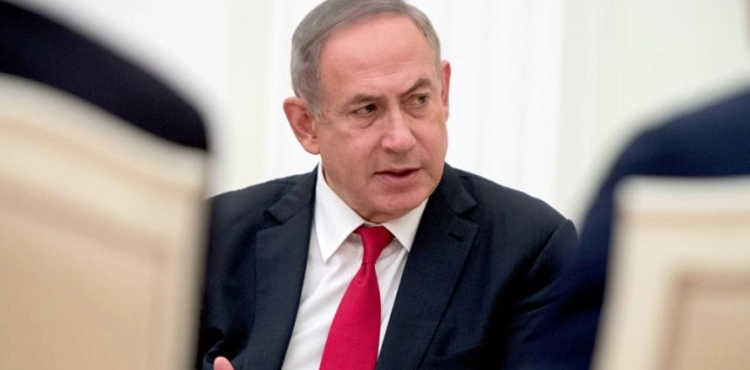Benjamin Netanyahu is officially on Wednesday to head the government for the fifth time, but the prospect of being accused of corruption could have overshadowed his coalition negotiations.
Israeli President Reuven Rivlin is expected to meet with Netanyahu at 7:00 pm after he left last week in a landslide victory over his coalition with small right-wing parties thatave him enough support to form a coalition despite the strong challenge he faced in the "blue and white" coalition.
"Within hours, I will assign the candidate (recommended by the Knesset parties) to the government," Rivlin said.
Netanyahu won the support of 65 deputies in the Israeli parliament, "the Knesset" out of 120.
And will have 28 days to form a government with the possibility of extension for two more weeks.
The April 9 election, the 69-year-old Netanyahu, was able to become the first prime minister to go beyond the period of the first prime minister after David Ben-Gurion, but there are dangers.
It will have to reconcile the competing demands of their potential allies with their conflicting interests.
Netanyahu´s former government is seen as the most right-wing in Israel´s history, and the next government is expected to resemble its predecessors if it does not turn more to the right.
It is expected to unveil in the next few months the plan of US President Donald Trump "Deal of the Century".
Trump has not yet indicated that his plan will include demands from his ally, Netanyahu, in the form of simple concessions to the Palestinians that would expose him to criticism from his allies.
But the biggest threat to Netanyahu is his possible charges of bribery, fraud and credit.
The Attorney General announced that he intended to indict Netanyahu after the expected hearing, and would be the first prime minister to be charged while in office.
Many analysts believe that Netanyahu´s call for early elections stems from his desire to face charges of electoral authorization.
In a speech on Tuesday evening, Netanyahu vowed to unite the community after the noisy election campaign and be prime minister for all. He criticized journalists who predicted he would appoint one of his allies as minister of justice, and that he was seeking to bring about changes in the Supreme Court, changes that the right had repeatedly sought.
There has been speculation about whether these changes could backfire and prompt judges to make tougher decisions about alleged Netanyahu corruption.
"We have given the citizens of Israel full and unequivocal confidence," Netanyahu said. "These skeptics are threatening us to pay a personal price," he said, referring to speculation about the possibility of mounting charges against him.
"This is what they call democracy and the rule of law, but every time we offer them a lesson in democracy through the ballot box."
The final results show that Netanyahu´s Likud party won 35 seats, the number won by his rival in the blue-and-white coalition led by former chief of staff Benny Gantz.
Gantz did not have the ability to form a coalition, especially after only 45 deputies in the parliament expressed their support for him in consultations held by the Israeli president.
Israeli elections are seen in many ways as a referendum on Netanyahu, who has been prime minister for more than 13 years, and who built his reputation as a guarantor of Israel´s security and economic growth, but his so-called right wing and alleged corruption all have called for some to change their positions.
During his election campaign, Netanyahu highlighted his relationship with his ally, Donald Trump, especially the latter´s recognition of Jerusalem as the capital of Israel, as part of his argument that he was the main statesman.
In the coming coalition negotiations, many analysts expect Netanyahu to ask his allies to remain in the government after being charged.
A bill to force religious school students to serve in the army, like their secular peers, is a major stumbling block for Netanyahu.
The hardline parties, which control 16 seats in the next coalition, plan to resist the project, which is held by former army minister Avigdor Lieberman, who is well aware that his party´s five seats in parliament will be decisive in forming Netanyahu´s next coalition.












